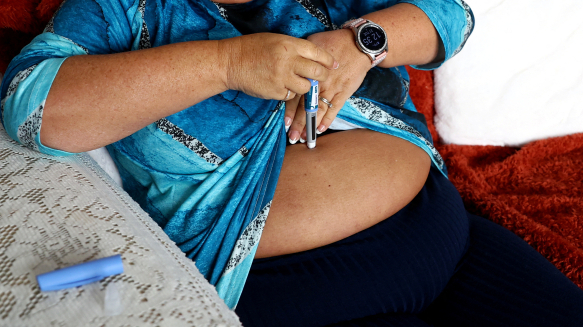Cuba fuel crisis turns into waste emergency as trash piles up in Havana amid energy blockade
Cuba’s fuel crisis has turned into a waste crisis, with garbage piling up on most street corners in Havana as many collection trucks lack enough pet...

The World Health Organization has added GLP-1 drugs to treat diabetes to its essential medicines list, alongside treatments for cystic fibrosis and cancer, and said it hopes this will improve global access to the costly drugs.
The list, consisting of 523 medicines for adults and 374 for children, is a catalogue of the drugs the WHO believes should be available in all functioning health systems.
In the past including a drug, for instance, HIV treatments in the early 2000s, has helped to ensure access for people in poorer countries.
“Rather than letting price be a disqualifying factor, the committee views inclusion in the essential medicines list as a potential catalyst for access,” Dr Lorenzo Moja, head of the WHO secretariat overseeing the list, told Reuters.
The expert committee added the active ingredients in Novo Nordisk’s NOVOb.CO Ozempic and Eli Lilly’s LLY.N Mounjaro to the list, to treat type 2 diabetes in conjunction with established cardiovascular disease, chronic kidney disease or obesity.
The drugs were initially developed for diabetes but have also become hugely popular weight-loss drugs, under different brand names.
The WHO stopped short of adding them to treat obesity alone, as it also did in 2023.
The committee said this decision provided clear guidance on which patients would most benefit from the therapies.
“High prices of medicines like semaglutide and tirzepatide are limiting access to these medicines,” the WHO statement added, saying that encouraging generic drugmakers to produce the product would also help when patents begin to expire on the drugs next year.
Globally, more than 800 million people worldwide were living with diabetes in 2022, the WHO said. There are also more than 1 billion people with obesity.
Earlier this year, a WHO memo said it would recommend the use of the drugs for obesity, a separate step to adding them to the essential list.
U.S. Ambassador to NATO Matthew Whitaker said China has the power to bring an end to Russia’s war in Ukraine, arguing that Beijing is enabling Moscow’s military campaign.
Austria’s Janine Flock won the gold medal in the women’s skeleton event at the Milano-Cortina 2026 Winter Olympics on Saturday.
Iran’s Supreme National Security Council Secretary Ali Larijani said the United States could evaluate its own interests separately from those of Israel in ongoing negotiations between Tehran and Washington.
U.S. Secretary of State Marco Rubio on Sunday (15 February) called it “troubling” a report by five European allies blaming Russia for killing late Kremlin critic Alexei Navalny using a toxin from poison dart frogs.
Israel’s National Guard is preparing to deploy drones capable of firing tear gas at Palestinians in the occupied West Bank, including East Jerusalem, as part of security preparations ahead of the Muslim holy month of Ramadan, Israeli Channel 12 reported on Saturday.
Measles cases across Europe and Central Asia fell sharply in 2025 compared to the previous year but health officials have warned that the risk of fresh outbreaks remains unless vaccination gaps are urgently addressed.
A Florida university has become a new hotspot in a widening U.S. measles outbreak, with health officials confirming multiple infections and hospitalisations.
The World Health Organization has added the Nipah virus to its list of the world’s top 10 priority diseases, alongside COVID-19 and the Zika virus, warning that its epidemic potential highlights the global risk posed by fast-spreading outbreaks.
Belgian authorities are examining suspected cases of infants falling ill after consuming recalled Nestle baby formula, amid warnings that confirmed infections may be underestimated due to limited testing requirements.
Two Nipah infections involving health workers in India have triggered heightened screening across Southeast Asia as authorities move to prevent the high fatality virus from spreading beyond the country.
You can download the AnewZ application from Play Store and the App Store.

What is your opinion on this topic?
Leave the first comment